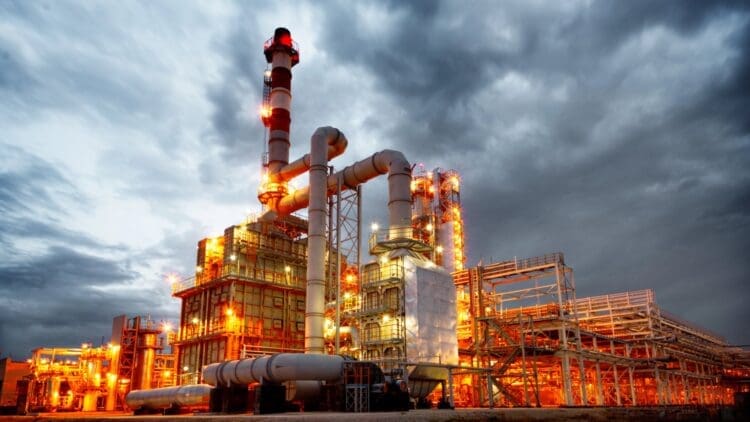A recent fire at Hungary’s largest refinery has fueled worries over regional oil supply, leading analysts and industry experts to urge a cautious approach to restarting operations at Dunai Kőolajfinomító (DUFI), Hungary’s only oil refinery. DUFI is owned by MOL Group, a publicly traded company, in which the government owns a controlling stake. As energy demand in the region is set to increase with the start of winter, the fire has placed significant pressure on the regional energy sector’s ability to meet demand, forcing the MOL to contemplate diverting oil supply from other projects.
The MOL Group is scrambling to restart operations following the huge fire that has halted production, for now
As the cold winter approaches in the Northern hemisphere, a substantial increase in energy demand is expected; however, the ability to meet that increased demand has come “under fire” following the recent fire at the Dunai Kőolajfinomító (DUFI), which affected one of its three main distillation units.
Naturally, the entire site’s operations were halted when the fire broke out. The fire at the Danube Refinery near Budapest was put out by firefighters only a few short hours after it began, although the source of the fire is yet to be determined. The fire has affected approximately 40% of the site’s output, leading industry insiders to voice concern over the energy security in Hungary.
Both the Hungarian government and the MOL Group have noted that the country’s domestic fuel supply remains secure
The first and obvious concern over human life aside, the worry is that Hungary’s fuel supply would be irreversibly affected by the fire; however, both the government and the company have stated that Hungary’s fuel supply remains secure. They are so confident in fact that the other two distillation units have been brought back online, following damage assessments.
Hungary’s Prime Minister Viktor Orban has ordered a full investigation into the fire
Naturally, the Hungarian government was quick to release a statement that notes its intention to conduct a full investigation into the source of the fire. Given that Hungary has such close ties to Russia, there are many theories at the moment, but no concrete evidence has emerged yet.
Krisztian Pulay, executive director of MOL, said at a press conference on October 21, that the fire had been contained and put out after only a few short hours. Additionally, they also noted that no injuries were reported, and there was no evidence of any external interference, sabotage.
Pulay said the full assessment of the damage can only commence once 24 hours have passed and the affected area has cooled. Initial assessments indicate the repairs could potentially take weeks or months, depending on the extent of the damage. As other nations see billion-dollar investments in downstream capacity, Hungary is facing a reconstruction period at its only oil refinery.
The AV3 unit has an annual processing capacity of 3 million tonnes, making it the largest unit at the site. Hungary will need to contemplate potentially turning to the West in order to alleviate the pressure on its oil sector.
MOL may have to purchase additional fuel on the market to compensate for the loss of production
The company has noted that it may need to reach out to foreign suppliers to compensate for the loss of production at the site, either that or they may need to draw from strategic reserves, enough to secure domestic supply for 90 days. As the European fuel margins are remaining strong in the face of increased demand, Hungary’s devastating fire may place pressure on European energy capacity. Once final assessments of the damage have been completed, we might have a clearer picture of the repair timeframe.





